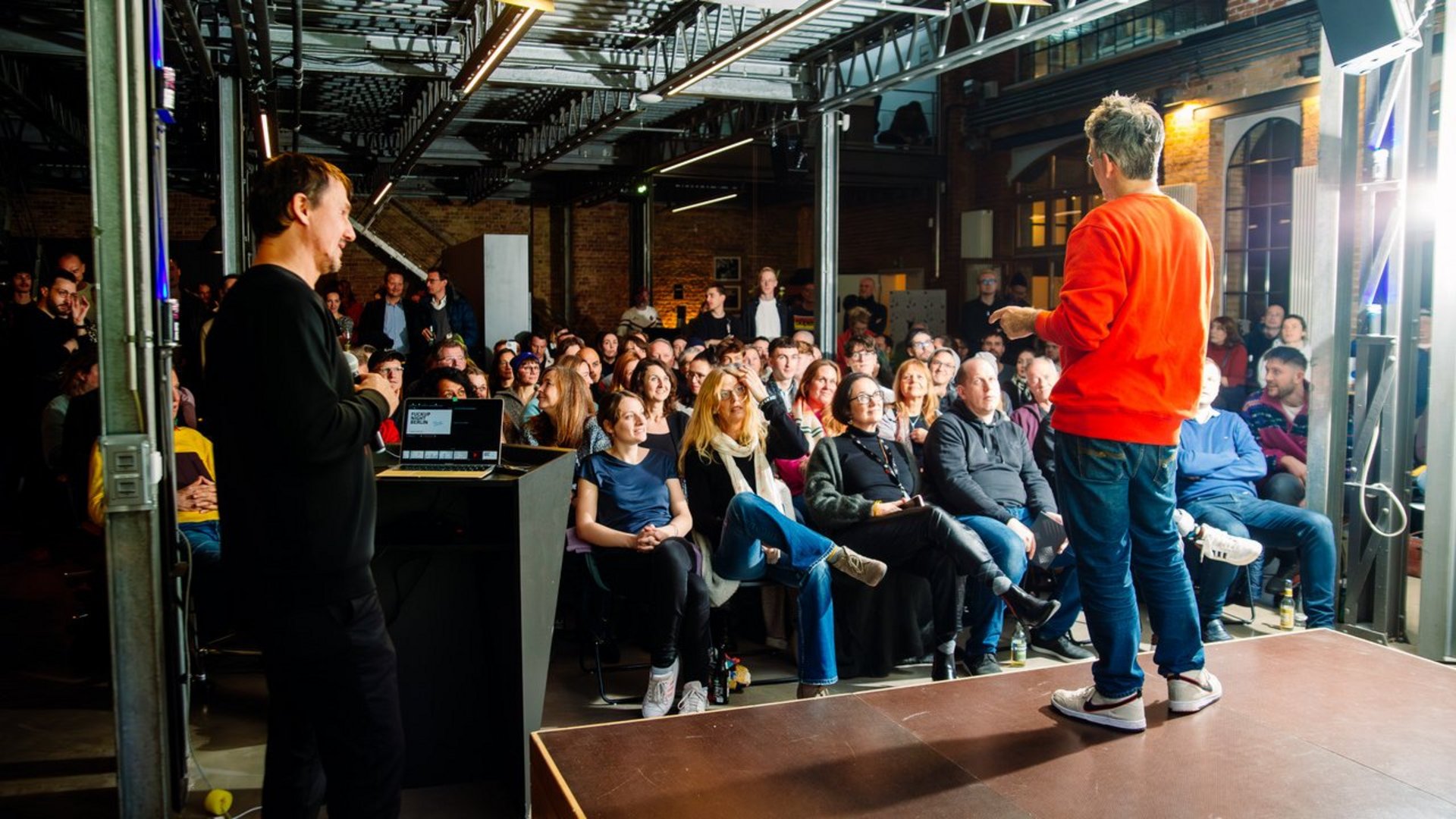
© Claudia Burger

© Claudia Burger
Fuckup Night Berlin is where failure takes the spotlight—and loses its stigma. We talked to founder Ralf Kemmer about why sharing mistakes matters, how companies can build real failure culture, and why the next fuckup is always the most exciting one.
I'm Ralf Kemmer, the initiator of Fuckup Night in Berlin. We’ve been hosting the event since 2014—so that’s ten years now—and we aim to organize it regularly, about every three months. Maybe you’ve heard of it or even attended before. At its core, Fuckup Night is all about failure—specifically, failures in the business world. Why did someone fail? What caused it? How did it feel—and what happened afterward? These are the questions we tackle in every session.
The idea for the Berlin edition actually came out of a friendship story. One of our close friends, Marcus, organized the very first Fuckup Night in Germany, in Düsseldorf. He asked me if our mutual friend Patrick would be willing to speak there. Patrick was in a tough spot at the time—his record label had just collapsed. He went to Düsseldorf, gave his talk, came back and said, 'That was an amazing experience—let’s do this in Berlin!' That was back in 2014, and we've been running it here ever since.

Both, actually. On a psychological level, it’s tough for everyone. As human beings, we don’t like to talk about failure because there’s often shame involved. In a business context, people fear consequences—being judged, losing credibility. It’s a mix of factors.
But it’s also a cultural issue. Compared to other countries, Germany ranks pretty low when it comes to openness around failure. There are studies and surveys showing this. Here, something really has to go wrong before people are even willing to talk about their mistakes. In some Asian cultures it can be even more difficult—but change is happening there, too. Many of those cultures now see failure as a tool for learning and improvement. In Germany, the focus is often entirely on the end goal—achieving success with as few deviations as possible. That’s a very German trait.
We offer corporate workshops and quickly realized that while our public events are engaging for audiences, companies need something different. They need tools, frameworks, and practical approaches to embed a failure culture into their structure.
And that’s not easy. We usually start by opening up a dialogue—just getting people to talk about failure is a huge first step. Then we move on to workshops where people are encouraged to share openly and develop mutual trust. That vulnerability is key. Some participants even seek advice from the group on what to do next.
But here’s the crucial point: a failure culture will only work if it’s supported and embodied by leadership. If it doesn’t come from the top, it won’t trickle upward. We’ve seen great grassroots initiatives, but without executive buy-in, they tend to stall. Sometimes we feel like a circus rolling into town—people are enthusiastic in the moment, but it fades afterward due to cost, effort, or inertia. It really varies.
There’s definitely been progress. Since 2014, concepts like “New Work” have gained traction, and the COVID crisis exposed a lot of failures—forcing many people to confront them openly. Some companies are receptive, yes. But real, widespread change is still hard to see. Many like the idea but underestimate how much of a cultural transformation it requires—and culture takes time. The biggest challenge is that companies give up too quickly. They don’t stay the course.
The classic Fuckup Night remains our main format: three speakers, plus an open mic slot where anyone can jump up and share their story. But we also adapt the format. We do keynotes at conferences or in companies—usually 30 to 45 minutes long. We host panel discussions, like at Berlin’s Long Night of the Sciences, and we experiment with different workshop setups. One ongoing challenge is balancing reach and intimacy. If we grow too large, we risk losing that safe, supportive space our audience provides. That’s why we’re cautious about how far we scale.
We think it's a fantastic fit. We attended the last edition as part of the audience and were so impressed that we knew we wanted to take part. A festival setting brings a different kind of energy—more openness, more community. There's a collective atmosphere that you don’t get with one-off events. Plus, it ties in beautifully with filmmaking, because anyone who's ever made a documentary knows it's full of unexpected failures. Talking about those will be fascinating.
Ah, you’re not getting an answer to that one! It’s the question we always get asked. We recently did a retrospective with our media partner FluxFM, looking back at ten years of highlights.
There have been plenty of compelling stories—some deeply personal, others more about systemic failure. We’ve had speakers who were incredibly innovative but got tripped up by bureaucracy. But honestly, the most interesting fuckup is always the next one. It’s fresh. It’s real. And it keeps the conversation alive.
Above all: openness. The willingness to accept that failure happens—to anyone. And if you can reflect on it, you can learn from it. You can find new approaches.Most of our speakers are highly driven, creative people who want to make something happen. That spirit is worth holding on to. Fear of failure shouldn't stop us from trying.